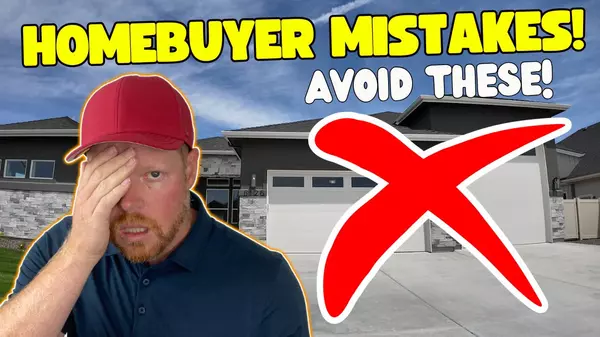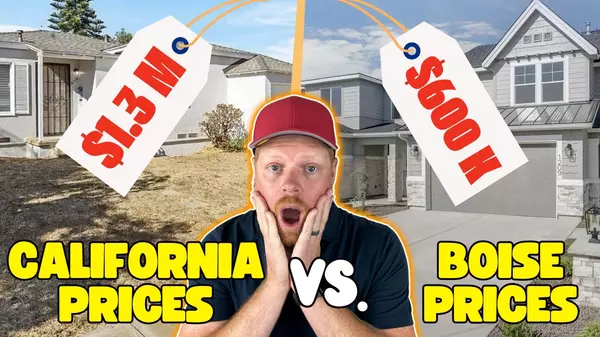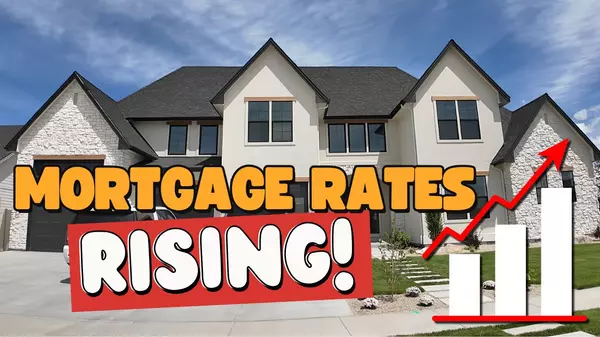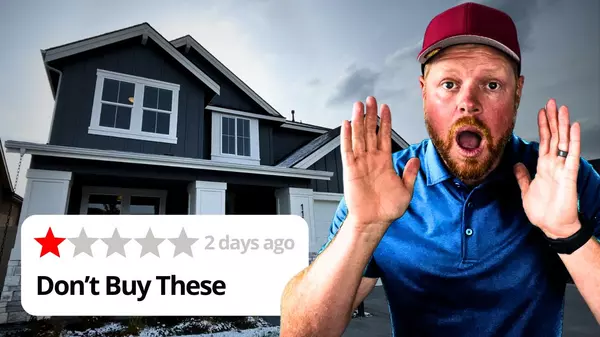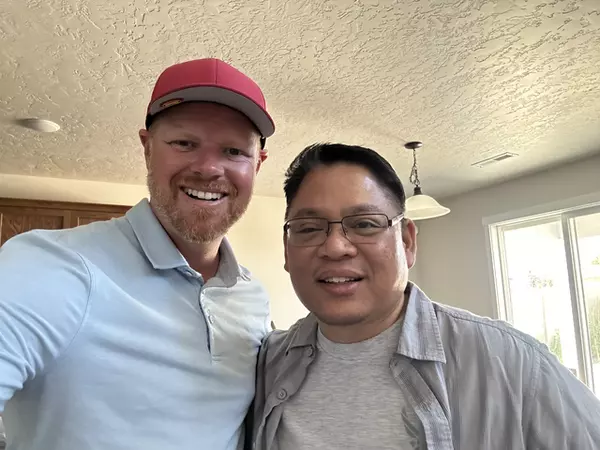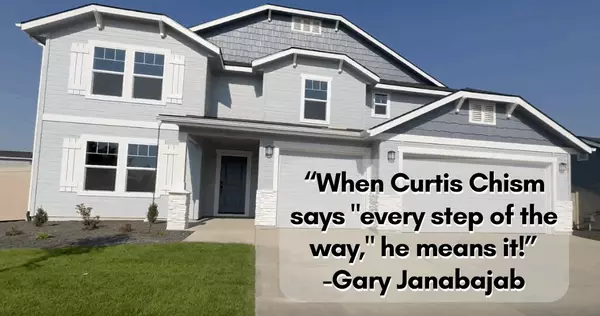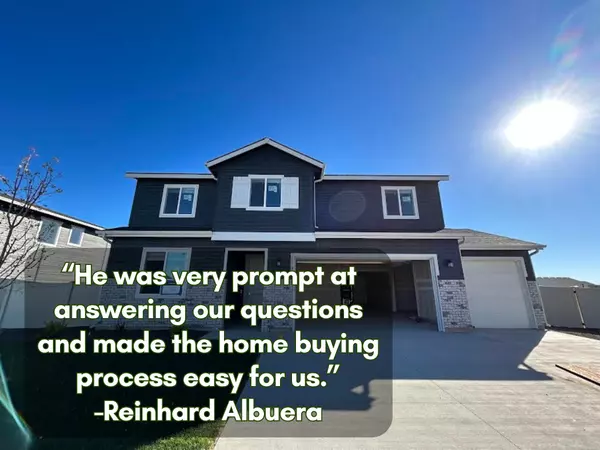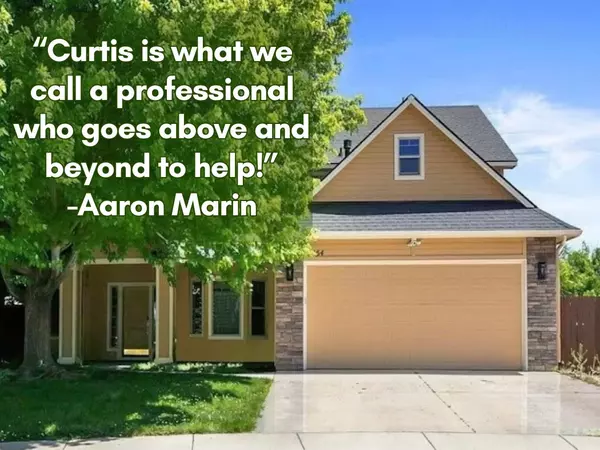Secrets of Buying a New Construction Home in Boise Idaho by a Construction Manager
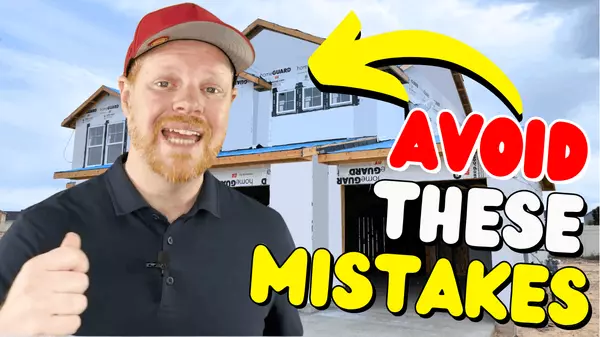
If you're looking to move to the Boise, Idaho area and you're considering new construction homes, consider this video your master class on everything you need to know about buying a new construction home in the Boise and Treasure Valley area. My name is Curtis Chism, and I have a master's degree in construction management from the University of Southern California. I used to build high-rises and luxury apartments and condos in downtown San Diego. I also have my general contractor's license back in California, but I moved to Idaho a couple of years ago to find a better life for my family, and we absolutely love it. I love helping people just like you make the move here. I really do specialize in new construction homes. It's been a passion of mine my entire life—building things and then building homes, and now helping people buy new construction homes up here in Idaho. In fact, of the 12 contracts that I have open while recording this video, they're all new construction homes. About 90% of the buyer side of my business is new construction homes, so it's a huge specialty of mine, and I love talking with people about new construction and helping them get into these beautiful new construction homes. So if that's you, we’re going to be covering things like: - The incentives that are available when you're buying new construction homes- Whether or not you can make contingent offers on a home- The accountability that's needed for the builders when you're buying a new construction home here in the Boise, Idaho area Let's get after it right now. Terminology of New Construction Homes To start, let’s cover some terminology of new construction homes so you've got a good baseline of what I’m going to be talking about in this video. Builders are going to refer to two types of options for you with new construction homes, and it's going to be a little confusing because oftentimes they’ll use the phrase "when you build with us." Build Homes vs. Spec Homes Now, if you're buying a new construction home, you might think, "Aren't I building with you no matter what? It's a brand new home; I'm building it." Well, that’s not the case. When they refer to a build home or build project, or "when you build with us," they're referring to the process of you actually going and selecting the lot that you want, the model home that you want with the right floor plan, the structural options, the finishes, and then that goes into the city and you build a semi-custom home with them. That process takes a while—typically 6 to 9 months. Quick Move-In or Spec Homes Now, you're thinking, "What's the other option?" Of course, there are quick move-in homes, spec homes, or move-in ready homes. These are homes that are either on the market right now, ready to buy and move into within the next 30 days, or they might be under construction and are four, five, or six months from completion. Sometimes they’re not even under construction yet but are still considered a quick move-in home and might be 8 to 9 months out. With these quick move-in or spec homes, there are basically no customizations allowed. The builder has already pre-selected everything about that home: the types of garages, maybe an RV garage, the types of finishes in the home (quartz vs. granite), the type of flooring, and you really do not get a say. With the build homes, you get to select almost everything in that home. Benefits of New Construction Homes vs. Resale Homes Now, why would you want to buy a new construction home versus a resale home? I like to compare buying a new construction home to buying a new car, but there are some benefits with it. Value and Longevity When you buy a new car, as soon as you drive it off the lot, it depreciates 25%. New homes do not do that; they hold their value. You have a brand new home that no one has lived in before, just like that new car. With a new construction home, you know exactly what that history is because you're the first one owning that home. With a brand new home, you also get brand new systems like your HVAC system, AC, furnace, roof, flooring—everything is brand new. You're not worried about it breaking down in 5 to 10 years or less with a resale home. You’ve got some good longevity out of all those things—probably a good 15 to 20 plus years before you have to replace them, assuming you maintain them correctly. Modern Layouts and Energy Efficiency With brand new homes, you also get the most energy-efficient homes on the market and the most modern layouts with the most modern finishes. Even homes built 15 to 20 years ago might have finishes that were really popular at that time, like the Tuscan feel with lots of travertine. While that looks great, it’s starting to get a little dated versus the more modern white quartz that a lot of people are choosing now. Community and Warranties The interesting thing about new construction communities here in Idaho is that you get a wide mix of people living here. You have local Idahoans buying new construction homes, but you also have a lot of folks from out of state, like myself, living in these new construction communities. I bought a brand new home when I moved to Idaho, and my immediate neighbors surrounding me all came from other states as well. It’s actually really cool to move into a brand new community and not feel like an outsider because you're new to the area—everyone else is new to the area too. Warranties Another reason to buy new construction homes are the warranties that come with them. You're going to get a one-year standard building warranty with pretty much any of the builders that will cover almost anything that can go wrong with the home, except cosmetic finishes like if you bang a wall. Any of the main systems will be covered under that. Some builders will also offer an extended warranty on structural options, potentially 5 to 10 years, and major systems like your roofing, AC, and furnace might carry a longer warranty—anywhere between 5 to 20 years. The Process of Buying a New Construction Home Now, let's talk about the process of buying a new construction home. This section will refer to the build process where you are selecting the lot and building a semi-custom home with the builder. A spec home will be a condensed version of this. Selecting the Lot When you purchase a brand new construction home, you are contracting with a builder here in Idaho. You get to select your lot from the lots that have been released. Some things to keep in mind when selecting a lot: popular lots here are homes with a driveway facing south, as the sun helps melt off any snow, or a driveway facing west for the same reason. These orientations also provide better shade in your backyard. Probably the worst lot to have is one with a driveway facing north because that snow and ice in the winter take a long time to melt off. Selecting the Model and Structural Options Once you've selected your lot, you also get to select the model you want, the floor plan, and typically your structural options upfront. These options include choosing between a two-car or three-car garage, a flex room, an office or an extra bedroom, a formal dining room, or converting it into a bedroom, and more. These are your structural options. Showroom Appointment and Finalizing the Contract Once your structural options have been selected, we contract with a purchase price. Then you will schedule a showroom appointment and actually come to Idaho to see everything in person. During this appointment, you will select all your finishes in the home. While you can do this virtually, I recommend seeing everything in person to better understand the colors, textures, and feel. Finalizing and Starting Construction After your showroom appointment and finalizing the contract price, including any lot premiums, the builder can draw up the final plans and submit them to the city. This upfront process of design and city permitting typically takes about two to three months. Once that is complete, you're ready to start construction, and the fun part really begins. Understanding the Construction Timeline Now, this next part is basically about four to six months, so that's how we arrive at generally about six on the low end to about nine months total construction time for a new build project. Now, with most builders, not all, but you're typically going to have a preconstruction meeting before you actually dig on the home, just to make sure that they've got all the structural options in the right place, the floor plan looks good, you give the green light, and then they start digging, usually the next day. Initial Stages of Construction Once the digging process is underway, things can happen fast. They'll dig, they'll pour the foundations, and then all of a sudden, boom, the house is framed, and things are progressing really rapidly. Things kind of slow down because there's a lot of progress right up front, and things just visually change slower as the plumbing, electrical, and HVAC goes in. Pre-Drywall Meeting Before we hit the drywall stage, right after all the in-wall roughing is done, the electrical, plumbing, and HVAC systems, we typically have a pre-drywall meeting. That is actually on-site, in the home, walking through the home, checking everything, making sure that all the electrical is in the right place and everything looks good before they actually button up the walls and drywall. Again, that can be done virtually. Most of my clients end up doing it virtually, but you can also be here on-site and do it in person. Final Stages and Inspections After the drywall stage, that is really your last opportunity to do any sort of pre-inspection on the home. They rock and roll, and then as we head towards the finish line, usually about two weeks or so before closing, I highly recommend doing a third-party inspection. It does cost a few hundred bucks, depending on the home, usually between $400 to $550, depending on how big the home is, how many bedrooms it has, but that is where accountability really comes in. New Homeowners Orientation Typically, the builders are going to fix all those things prior to the New Homeowners Orientation. The New Homeowners Orientation is going to be done right before closing, usually within three to five days. This is essentially your final walkthrough, verifying any repairs that you requested were made and walking through how your home operates, all the major systems of the home, and the warranties that are included with the home. After the New Homeowners Orientation, we're going to sign off on everything. You're going to go to the closing table, either here in Idaho at the title escrow company or, if you're still not here in your other state, then you're going to do a mobile notary, sign all the loan paperwork if you're buying with a loan. If you're buying cash, there's not much to do. You just have to sign everything over a DocuSign, typically digitally, and then the home is yours, and you get the keys. Quick Move-In Homes With a quick move-in home, a lot of this is condensed. You basically have an opportunity to do a third-party inspection, we'll do that New Homeowners Orientation, you'll sign your paperwork, and you get your keys. Much more condensed process, but a lot fewer choices as well. Financial Considerations Next, we're going to talk about some of the financials around buying a home and what to expect so you're not disappointed. I've had a number of times where people get into buying the home and then they realize some issues around contingencies that just don't quite work. Expected Financial Requirements Let's talk quickly about what to expect as far as the money that you're going to need to come into buying a new home with the builders. Generally speaking, you're going to be coming in, if you're buying a quick move-in or spec home, typically somewhere between 1% of the purchase price to 4% of the purchase price. Let's just say you're buying a $600,000 home; 1% is going to be about $6,000, 3% is going to be $18,000. Now, if you're building, so you're actually selecting your lot and the home and going through the nine-month process, usually you're going to be required to come in with more money, typically around 10% non-refundable. So again, if you're buying a $600,000 to $700,000 home, you're looking around $60,000 to $70,000. Additional Financial Requirements for Upgrades Also, they are going to require for any upgrades you make in the showroom, you're going to have to come in with a percentage of that. That could range from anywhere from 10% to 50% of the upgrades you make. So, if you make $100,000 in upgrades, you could be coming in with an additional $10,000 to $50,000 of the upgrade selections that you made. Promissory Notes and Earnest Money Deposits There are a couple of builders around here that also tack on a promissory note. What this means is they're going to have your deposit somewhere between 4% to 10% that you have to come in with, and then they're going to tack a promissory note on there as well. So, if you back out of the contract, they have the legal right to come after you for an additional percentage. And what I've seen typically is another 6%. One builder here requires a 4% earnest money deposit with a 6% promissory note. Another one requires 10% with a 6% promissory note, so you're on the hook for 16% plus any showroom upgrades that you make. Non-Refundable Deposits Here's the big kicker with all these builders: typically, these are going to be non-refundable deposits. So, if you back out on the home for any reason, you're pretty much losing that deposit. Occasionally, they will allow financing contingencies, appraisal contingencies, but oftentimes with the builders, you just don't get that opportunity. You're really committed when you're going in on this. Contingent Offers Essentially, no builder allows contingent offers on the sale of a primary residence. So, if you're coming here and you're saying, "Hey, I'm going to buy cash with the proceeds of my home back in, say, California," most likely you're not going to be able to make a contingent offer. So, if you're unable to sell that home, you're on the hook to buy that home, and you're going to lose that earnest money deposit. Builders' Policies on Funds and Pre-Approval Some builders will still allow you to contract on the home and build over that nine-month process. They understand that you have to sell your home. It's not contingent, but they'll give you that time frame to sell your home and either have your down payment or your full cash purchase come from the sale of the home. Other builders will not allow that at all. They want to see that you have full funds or pre-approval for the full amount of that home. I've run into this a couple of times with folks with different builders where they get really frustrated by that process because they're planning to buy cash. They don't want to go through the whole approval process for a loan, but the builder has to see the money in a bank account. Now, it might be in your savings, your checking, or an investment account before they will allow you to contract on the home. So, just be aware that contingent offers are not really a thing on new construction homes here in Idaho. Builder Accountability and Quality Now, we're coming up on incentives that you can get here with builders here in Idaho, but I want to talk about accountability and what to expect when working with the builders here in Idaho. Now, we have a lot of quality builders here. They are building good homes. There are better builders, and there are not as good builders. You can go online and see all kinds of reviews about all these builders. Some are going to have horrible reviews, and some are going to have really good reviews. Importance of Representation You have to keep in mind that a lot of people, when they are leaving reviews online, are usually doing it because there's enough of a drive to do that, and it's usually because they're frustrated. So, you're going to get probably the worst reviews in a lot of builders here. Take some of that with a grain of salt. Reach out to me; we can talk through what I think are some of the better quality builders depending on your budget. There are more budget-friendly builders here and certainly higher-end, more luxury builders. So, there's a wide range of builders that we can discuss. But no matter what, you want to make sure you have representation through an agent like myself who has experience in the construction trades, with contracts, and with working with the builders here in Idaho. Because you do not save any money by trying to go direct through a builder, and you will be frustrated through the whole process. Builder Contracts and Customer Service I have had people reach out to me as they're midway through working with a builder on their contracts wanting me to represent them, but it's too late because the builders will not allow an outside party to come in and represent you once you've made contact with that builder. You have to know these builder contracts and what is in them. Some of the builders have their own contracts you have to sign; they don't use the standard Idaho contracts. Even if they do use the standard Idaho contracts, they likely have their own addendum or rider on there where you have to sign off that basically supersedes the main Idaho contract. Some of these builders actually pay their builder reps their commissions upfront. So, what happens there is, if you're an agent, you're a builder rep, and you're given your commission, what are you incentivized to do? You're incentivized to make that sale as fast as possible, --- By following this guide, you'll be well-prepared to embark on the exciting journey of buying a new construction home in the Boise and Treasure Valley area.
Read MoreWhat You Need to Know When Buying a New Construction Home in Boise Idaho
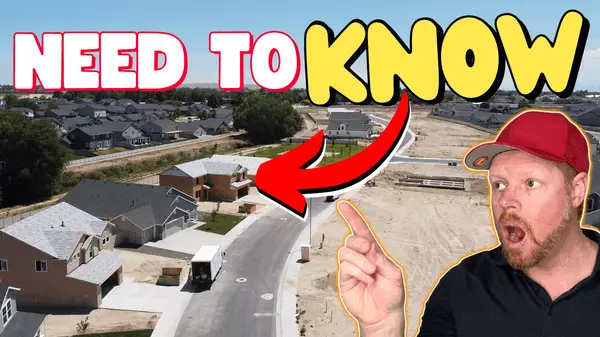
This is predominantly what I focus on as a real estate agent here in the Treasure Valley. I moved from San Diego, California a couple of years ago with my wife and my kids. I have a master's degree in construction management from the University of Southern California. I used to build high-rises in San Diego, luxury condos, luxury apartments, things of that nature. I grew up in the trades as a finished carpenter. My dad was a painting contractor; my wife's dad is a general contractor. It's in my blood, and now I love helping selling these types of homes. So I figured what better place to do a video like this than standing in a new construction home here in the Treasure Valley. Again, my name is Curtis Chism, and I love helping people just like you make the move here. Let's get after everything you need to know about buying a new construction home. Understanding Builder Lingo We're going to start with some of the basics about the lingo that Builders use and then also who some of the builders are in the valley that a lot of my clients end up choosing to work with. The first thing you need to know is that there are a lot of Builders throughout the Treasure Valley, and people moving here from out of state really love the new construction homes. Virtually all my business is new construction. In fact, I have 11 contracts open right now, and they are all new builds, ranging from spec homes to homes that are being built specifically for that client. Spec Homes vs. Build to Suit So there are two different terms you need to know: spec home or a move-in ready or quick move-in (QMI). You'll see these as well, and these are all homes that have been pre-designed by the Builder. Everything has been chosen by the Builder and their designer, and there really is nothing that you can do as far as choices in that home. The other term is going to be a build home. When you build with us, that means it is basically built to suit. You get to select your lot, your floor plan, and certain structural options. Working with Builders Something else you're going to find when you're working with new Builders is that there are sales centers all throughout the valley here. Builder Recommendations and Quality Levels Let's talk through some of the builders here in the valley levels of quality. Understanding Contracts Now some of the things you need to look out for in these contracts depending on the Builder they're going to be very very simple to much more complicated. Conclusion Well, that's an overview of buying a new construction home here in the Treasure Valley. Of course, there's more, but if you just reach out to me via phone text or email at the contact information listed below, we'll jump on a Zoom call and we'll work through the exact process that's going to work for you with a specific Builder and answer all your questions along with your timeline to get you into a beautiful new construction home here in Idaho. So just reach out via phone text or email again, we'll jump on that Zoom call.
Read MoreTop 10 Pitfalls for New Construction Homes in Boise Idaho
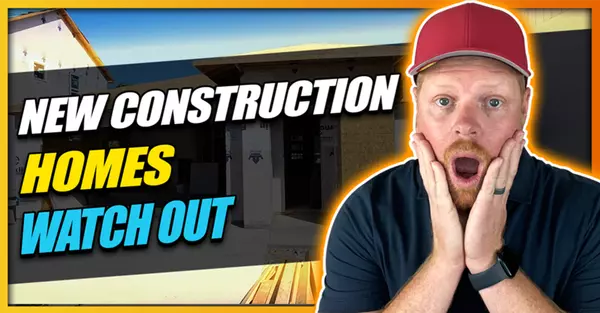
Thinking of buying new construction homes in Boise Idaho? Find out the top things you need to watch out for in new construction homes in Boise Idaho and the Treasure Valley in this video. Watch this video before you buy a new construction home in Boise Idaho.
Read More
Categories
Recent Posts
